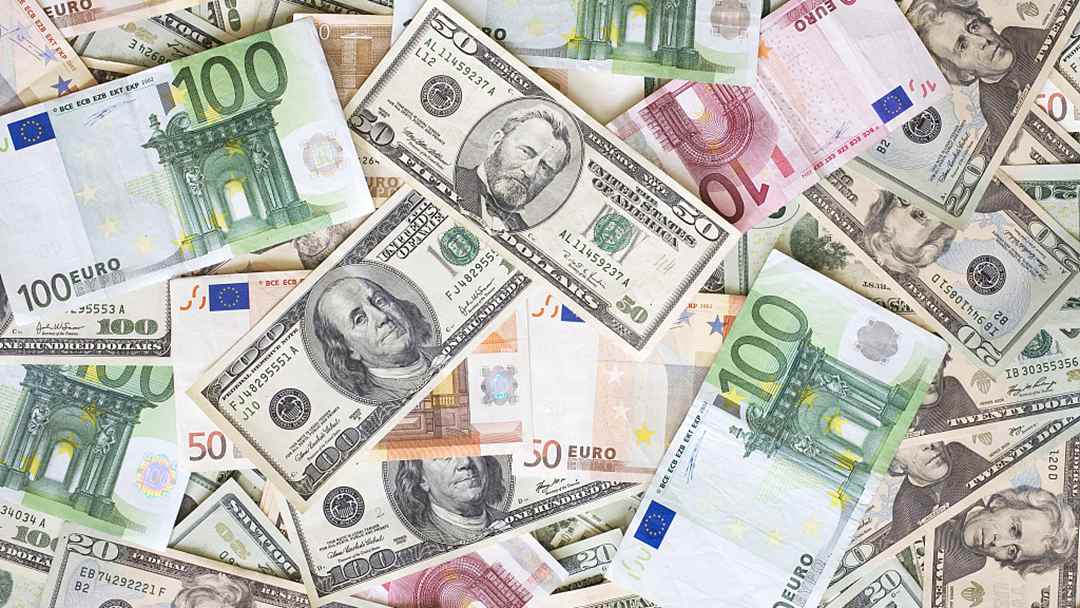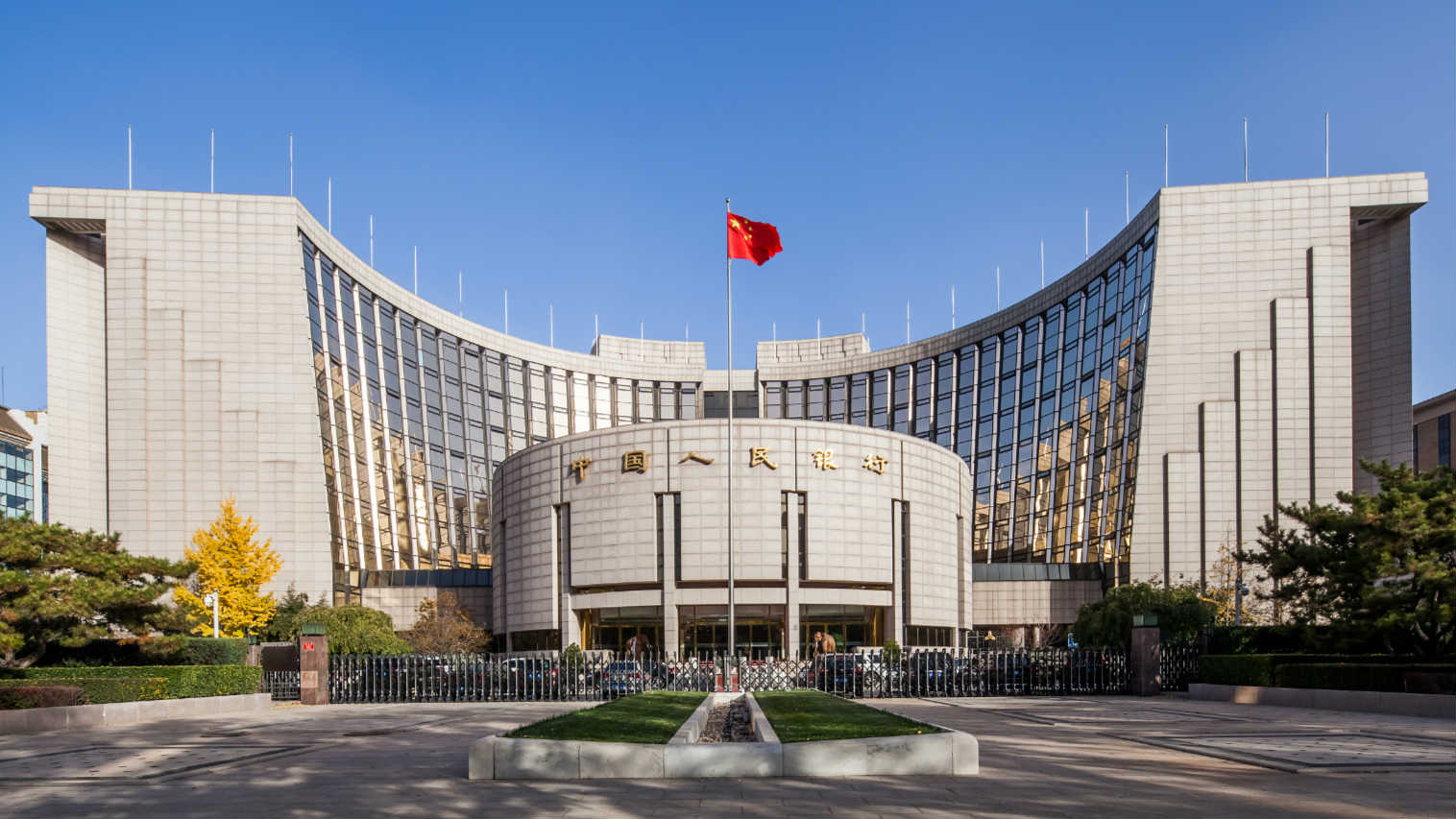
Editor's Note: Ken Moak taught economic theory, public policy and globalization at the university level for 33 years. He co-authored a book "China's Economic Rise and Its Global Impact" in 2015. The article reflects the author's opinions, and not necessarily the views of CGTN.
The recent announcement by the People's Bank of China (PBOC) on fast-tracking the process of internationalization of the yuan is a step in the right direction – the sooner it happens the better. Having another powerful rival of the U.S. dollar on the global stage will improve the international financial system, promote economic growth and geopolitical stability.
Since the U.S. dollar has become the world's reserve currency, U.S. presidents have been using its power to sanction nations they did not like or carry out massive quantitative easing (QE), printing money to buy treasuries. This has wreaked economic and financial havoc in the world, including the U.S.
It was under the Barack Obama administration that the U.S. Federal Reserve (Fed) printed trillions of dollars to buy U.S. treasuries. The government used the money to bail out "banks and companies too big to fail" in an attempt to reverse the financial crisis-induced recession of 2008/09.
The massive amount of money the Fed printed, however, created a financial issue of its own. The increase in the U.S. money supply depreciated the value of greenback, leading to an increase in exports while the imports fell. To protect their exports, trade partners depreciated theirs, leading to a currency war between countries such as Brazil and Germany.
But QE did little to lift the U.S. economy struggling to recover from the 2008 financial crisis-induced recession for over 10 years.
Under the Trump administration, the Fed printed more trillions of dollars than under Obama because the economy is in worse shape than that of the financial crisis period because of the president's trade wars and mishandling of the COVID-19 pandemic. In 2008, the U.S. economy contracted by less than 2 percent, but it is expected to sink by over 8 percent in 2020.
The massive increase in money supply has caused concern around the world, prompting China Banking Regulatory Commission Chairman Guo Shuqing to warn that U.S. dollar dominance is the seed of crisis. Guo rightly observed that because the greenback dominates international financial system, massive printing of the U.S. dollar would undermine its worthiness and by extension distort global financial stability.
The lack of confidence in the U.S. dollar could lead to massive dumping of the greenback, creating economic and financial crises worse than that of 2008. Should that emerge, an international financial system breakdown could not be ruled out.

The headquarters of the People's Bank of China in Beijing. /VCG
The headquarters of the People's Bank of China in Beijing. /VCG
Trump's frequent and reckless application of sanctions against countries he deemed "unfair" to the U.S. could further stress the world trading and financial systems. Stopping countries from accessing the U.S. dollar-dominated payments systems would disrupt or reduce trade transactions, leading to economic distortion or putting the economy on a downward spiral. Trade accounts for over 30 percent of the world economy, after all.
Chinese officials and businesses have been targets of U.S. sanctions which could place its financial system at risk because some have assets in the U.S. and Chinese banks carry U.S. dollar-dominated portfolios. There is even speculation that Trump might cut off U.S. dollars or deny China access to its SWIFT payment system. If he does that, disruptions or even chaos in China's financial system cannot be discounted.
In this context, it makes sense to fast-track the internationalization of the yuan because both Democrats and Republicans are on the same foreign policy page, seeking global dominance. There is no reason to believe that Joe Biden or future presidents would act differently than Trump with respect to China.
Having an alternative major global reserve currency on which countries could rely for trade and investment transactions would bypass the greenback, rendering U.S. sanctions ineffective and preventing the Fed from massive money printing.
A spillover benefit of having the yuan as an international currency is reduction of transaction costs and exchange rate risks. The present situation is that countries must convert their currencies into U.S. dollars and then exchange the greenback for the currency of the creditor country. Multiple exchange rates changes raise export/import prices, eroding international trade. Having only to convert into yuan would minimize not only transaction costs, but also improve price stability which in turn promotes or enhances international trade.
Internationalizing the yuan is also realistic because China has the largest GDP in terms of purchasing power parity (PPP) and biggest or major trade partners in over 120 countries. Some economists believe that PPP measurement is a truer indication of an economy's size because it represents the purchasing power of money.
China's successful Belt and Road Initiative will likely bring more nations to the Chinese orbit of influence, particularly in the post-COVID-19 era. Since over half of the world trades with China more than it does with the U.S., the yuan is preferred just as much if not more than the greenback.
(If you want to contribute and have specific expertise, please contact us at opinions@cgtn.com.)